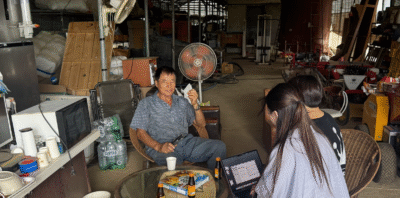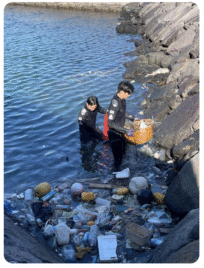Preparing for the Deep
Training for Purpose, Not Recreation
As part of our continuing efforts to protect the marine environment, our Spiritus team has begun exploring farther into the ocean. These upcoming missions require focus, discipline, and technical skill. They are not recreational dives, but purposeful steps toward understanding and preserving the underwater world.
Under the guidance of certified diving instructors, we began a new phase of rigorous training designed to prepare us for deeper, more complex dives. Each session challenges both body and mind, reminding us that safety and responsibility must come before exploration.

The Skills We Worked on Today
1. Swimming Underwater in Scuba Gear
We practiced long-distance swimming in open water while fully equipped with scuba gear. Maintaining neutral buoyancy, controlling breathing, and adjusting body position were key goals. Even small mistakes such as like breathing too quickly or tilting the body incorrectly can disrupt balance underwater. This part of the training emphasized precision, control, and self-awareness.
2. Safety and Pressure Equalization
As we descend, water pressure increases, especially around the sinuses and ears. Proper equalization is essential to avoid pain or injury. We practiced techniques such as the Valsalva maneuver, descending slowly and adjusting as needed. Although it may seem simple, mastering it requires patience and repeated practice.
3. Physical and Mental Endurance
The training was demanding. The equipment felt heavy, and the water was colder than expected. Yet learning to stay focused under discomfort is part of the process. We learned to move steadily, remain calm, and rely on teamwork. These skills will be critical when we enter deeper, less accessible marine areas to remove debris and protect marine habitats.

Why This Training Matters
Every dive and drill has a purpose. The deeper ocean often hides the most dangerous debris which are abandoned fishing nets, plastic waste, and sharp metal fragments. These areas are rarely cleaned because of their depth and difficulty, yet they are the most in need of care.
By training now, we are preparing to reach places where help is scarce. Our goal is not only to become better divers but to join a growing community of people committed to restoring and protecting the ocean.
Reflections from the Deep
After today’s session, I felt both humbled and inspired. Being underwater reminds us how small we are compared to the vastness of the sea, yet how much power we have to protect it. The quiet beneath the surface, the rhythm of breathing, and the gentle push of the current all teach respect and mindfulness.
This is only the beginning. More training lies ahead, and soon we’ll be exploring areas few people ever see. I’m proud of our team, steadily growing stronger, more skilled, and more determined, not for ourselves, but for the ocean and all the life it holds.

Discover more from Spiritus Blog
Subscribe to get the latest posts sent to your email.




Yo, looking for a solid agent? Agent Bong88 seems like a good place to start. Check ’em out for yourself! agent bong88